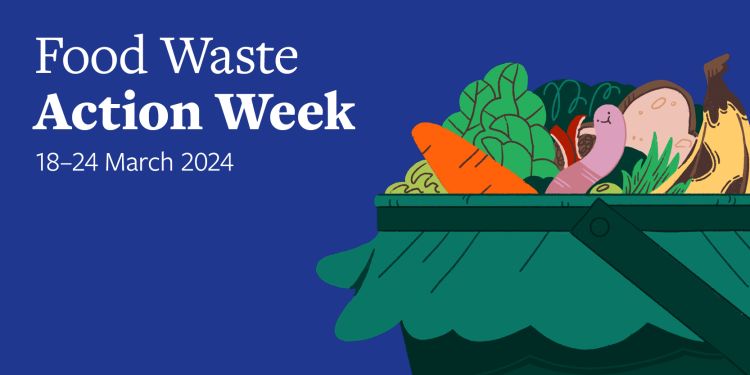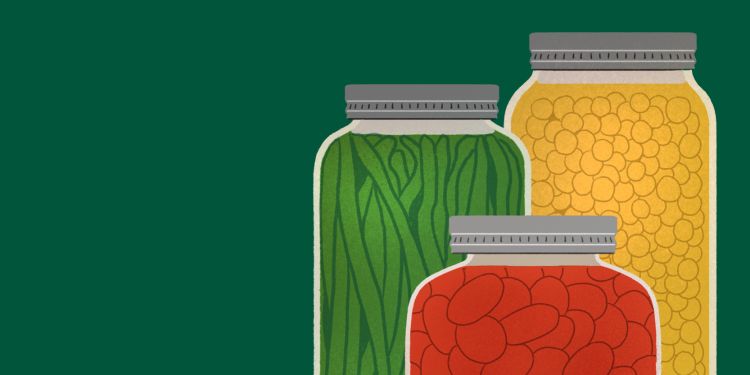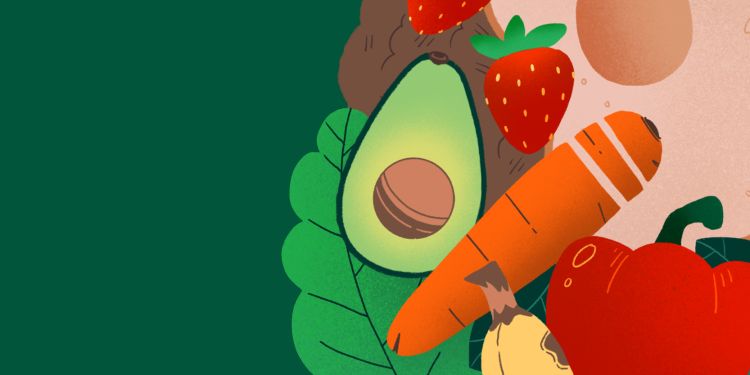AI-optimisation, composting and policy change to reduce food waste

One-third of all food across the world is wasted. Food waste contributes to climate change, greenhouse gas emissions and the misuse of land, energy and water.
At a time when many are experiencing a cost-of-living crisis, poverty and malnutrition, it is essential to reduce food waste to save money, redirect resources to those in need and to prevent climate change and injustice.
As part of their Sustainable Development Goals (SDGs), the United Nations aims to halve food waste by 2030. Meanwhile, the UK government has promised to reduce food waste by 20% by 2025.
The University of Leeds community works on varied solutions to food waste.
These include novel ways to recycle food byproducts and industry side streams, initiatives to support local composters and work with policymakers to improve food systems.
Artificial intelligence (AI) can support food recycling
One cause of food waste is the side streams from food production. For example, the leafy tops of carrots are typically discarded before they reach supermarkets and the peel from canned fruit is thrown away.
However, not all these byproducts are unusable.
An international AI for Bioscience partnership led by Professor Nik Watson in the School of Food Science and Nutrition uses artificial intelligence (AI) to optimise the fermentation of food waste into new protein products.
Professor Watson is working with many academic and industry partners on the project, titled AI-Optimised Fermentation for Sustainable Protein Production from Food Side Streams. The international partner is the Commonwealth Scientific and Industrial Research Organisation (CSIRO).
As the content of food waste streams can vary, AI will determine the best way to transform it based on its composition, solid content and other factors.
The AI can be used for a wide range of waste streams.
The project will create a sustainable and economical method of protein production that contributes to a circular economy.
It’s not only edible products that can be created from food waste.
Professor Richard Blackburn (School of Design) and Professor Chris Rayner (School of Chemistry) co-founded Keracol Limited, a spin-out company that recycles waste from the fruit processing industry. Meryem Benohoud is the Technical Director.
They have collaborated with researchers Professor Francisco M. Goycoolea, Professor Caroline Orfila and Dr Christine Bosch from the School of Food Science and Nutrition to understand the properties of the discarded produce.
Their products include hair dye made from blackcurrant skins, compostable food packaging made from pectin and sustainable skincare products: exfoliators, antioxidant serums and soothing creams all made using extracts from the mandarin peel.
Read the Spotlight article about Keracol's sustainable product creation.
Solutions to food waste for businesses and households
Most of the UK’s food waste is from homes, up to 70%. The most wasted foods in this country are potatoes, bread and milk.
One way food can be reused rather than wasted is by turning it into compost. However, not everybody knows how to compost or has a garden or space to grow plants where they can use that compost.
The initiative Compost-it, led by University of Leeds alumni, is changing this. The organisation helps businesses and households redirect their waste to local composters and gardeners rather than sending it into landfill.
Compost-it was founded by former MA Sustainable Food Systems students Husain Alogaily and Simrun Punjabi, with product designer Inioluwa Oluyemi. More alumni have since joined the team, including Niraj Sunil (MSc Biotechnology with Business Enterprise), Joe Griffin (MSc Biodiversity and Conservation), Elise Whiteman and Emma O'Donnell (MSc Sustainable Food Systems).
They recruit volunteers, including many from the University of Leeds, to support their operations.
The team provides bins and collects food waste from households and businesses that don’t already compost. They exclusively use sustainable means of transport to minimise emissions, collecting and delivering compost on foot with carts and strollers.
The organisation also provides education about food waste and sustainability to its community.
Compost-it aims to revolutionise the recycling industry, making strides towards significant advances in sustainability, efficiency and reliability.
Consumer behaviour impacts food waste, as purchasing too much food or serving large portions can create leftovers.
Dr Tang Tang (School of Design) investigated the impact of packaging designs on this behaviour to see whether packaging could affect food intake among children, control portion size and reduce food waste.
The designs, with serving size reminders and visuals, received positive feedback from families.
Dr Tang said: “Addressing the intertwined challenges of childhood obesity and food waste demands innovative solutions. Our emphasis on design-led portion control not only promotes healthier diets but also actively contributes to reducing food waste, creating a synergistic win-win scenario for both public health and environmental sustainability.”
Read Dr Tang’s published paper about "Downsizing by design".
The project followed another study which Dr Tang worked on with colleagues at the University of Leeds, the University of Sheffield and the University of St Andrews.
They examined environmental prompts for healthy portion control for young people and caregivers to reduce the food waste associated with overconsumption.
Although parents acknowledged the issue of large portions, they lacked downsizing strategies at home and expressed the need for support.
Food systems through literature
Professor Andrew Warnes (School of English, Global Food and Environment Institute) studies food systems in history and literature.
His new project “The Sick Miracle: Literature and the American Food Revolution” looks at the American post-war food system, comparing the political euphoria to the accounts of writers around it.
One concern writers had about the post-war “agricultural miracle” was its wastefulness.
For example, in ‘The Unsettling of America’ (1970), the novelist, poet and essayist Wendell Berry said: “with its array of gadgets and machines, all powered by energies that are destructive of land or air or water, and connected to work, market, school, recreation, etc., by gasoline engines, the modern home is a veritable factory of waste and destruction.”
With grant support from the American Philosophical Society, Andrew will ask whether these complaints hold true today and whether culture could change quickly enough to reconcile with the climate emergency.
Food systems and policy
Reducing food waste in households and businesses can have a huge positive effect on climate change.
However, research by Associate Professor Effie Papargyropoulou in the School of Earth and Environment shows that we need to reframe our view on food systems to address its root issues.
Dr Papargyropoulou focuses on food hubs in cities, which often redirect food from businesses that would be wasted due to surplus, high cosmetic standards or ‘best by’ dates.
With Leeds City Council and charity Foodwise, Dr Papargyropoulou developed a Food Hub Impact Evaluation Toolkit to help improve local food hubs.
They created a policy brief to encourage policymakers to support the hubs effectively.
Food hubs are essential to provide food and nutrition to people who cannot afford it. They also help to reduce food waste.
However, Dr Papargyropoulou warns that they should not be the end of the food security and sustainability discussion.
Instead, the local and national governments must address the root causes of poverty and improve food systems to make them just and sustainable.
About Food Waste Action Week
Food Waste Action Week is Love Food Hate Waste's flagship annual campaign to support businesses, government organisations and individuals to reduce food waste.







